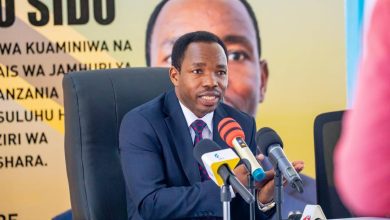Experts chart path to inclusive growth

DAR EWS SALAAM: ECONOMIC and tax experts have called for stronger linkages between Tanzania’s key sectors — agriculture, industry and services to other sectors to promote inclusive growth.
They made the call during the EY Annual Budget Briefing in Dar es Salaam, organised to analyse the proposed 2025/26 national budget tabled in the National Assembly last Thursday.
“Our economy is growing, largely driven by the three sectors of agriculture, industry and services. However, we must ensure these sectors are better linked with others so that economic growth becomes truly inclusive,” said Economics Professor Abel Kinyondo.
Prof Kinyondo observed that despite their significant contribution to the economy, the three sectors are not generating sufficient employment for Tanzanians.
He noted that Tanzania’s economy has grown steadily over the past two decades and expressed optimism that the country could attain its goal of becoming an upper-middle-income economy by 2050, as outlined in the National Development Vision 2050 draft.
“Good governance is key, as it is closely associated with higher citizen income and sustainable development,” he added.
Executive Director of the Tanzania Private Sector Foundation (TPSF), Mr Raphael Maganga, commended the proposed budget for prioritising inclusivity.
“It is a budget that has incorporated many of our recommendations, especially in safeguarding local manufacturers. This will create more employment opportunities for Tanzanians and increase government revenue through enhanced local value chains,” Mr Maganga noted.
ALSO READ: Fees slashed in livestock, fisheries to spur growth
He stressed the importance of supporting domestic industries, stating: “Without protecting Tanzanian manufacturers and products, we cannot meet our development targets.”
However, he also emphasised the need to broaden the tax base.
“We expect the budget to open up more avenues for tax collection,” he added.
On his part, Senior Tax Manager at EY, Mr Fredy Rugangila said the budget proposal reflects the government’s intention to achieve fiscal self-reliance in light of diminishing donor support.
“For example, the introduction of new taxes will boost domestic revenue, enabling us to finance key development projects,” Mr Rugangila explained.
His sentiments were echoed by Ms Beatrice Mekiory, EY Associate Partner, who noted that the proposed budget includes favourable measures for local businesses, including tax exemptions in the agriculture sector.
“I believe tax administration must be strengthened, and the tax base expanded. This will result in increased tax collection,” she said.





